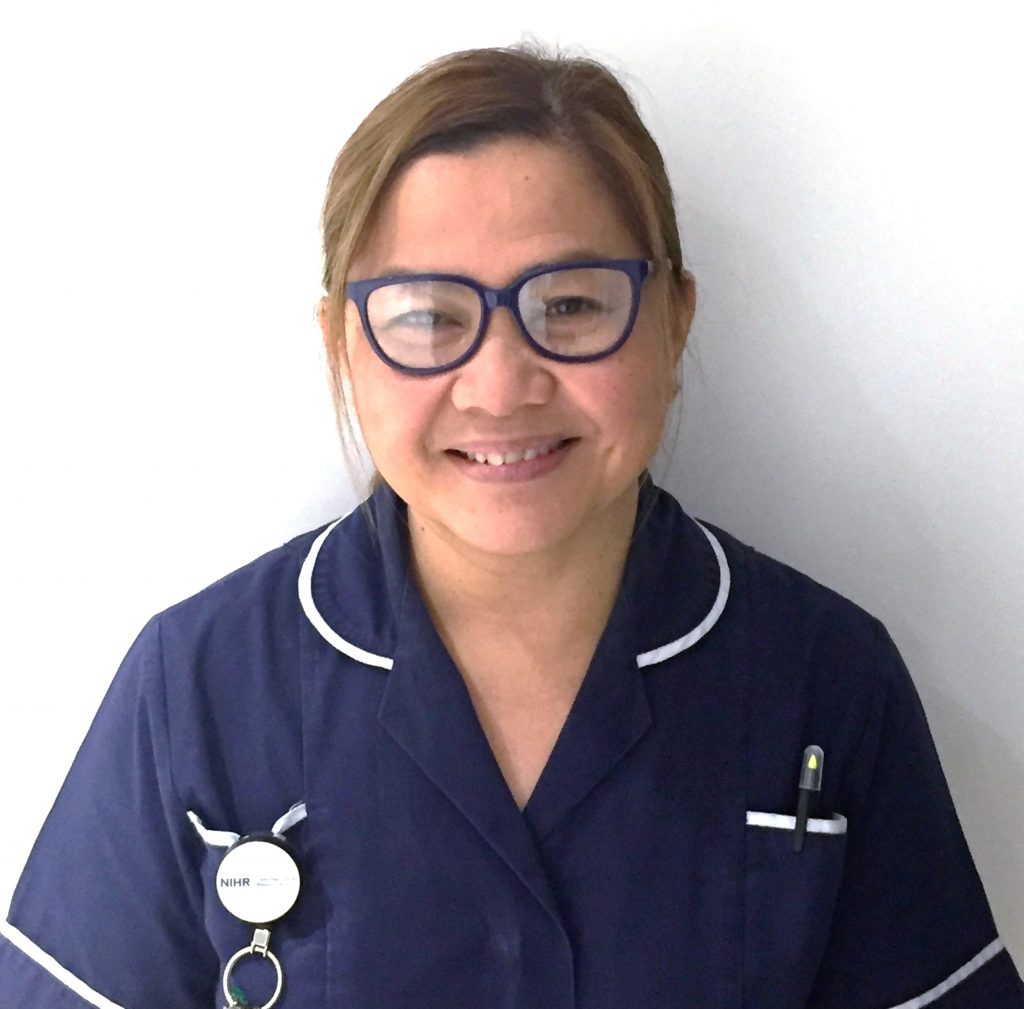‘Come and join us. Make a difference!’

Senior Clinical Research Nurse Myrna Udarbe joined Cambridge University Hospitals in 2002, and works in the Cambridge Clinical Research Centre (CCRC) Interventional Procedures Unit.
What kind of research takes place in the Interventional Procedures Unit?
The unit facilitates ethically-approved research involving interventional procedures, using advanced techniques for the study of oesophageal, liver, lungs, pancreatic, colonic and prostate diseases, neurological diseases, cell treatments and intensive endotherapy.
What do you do day-to-day?
My job as a team leader is complex, varied and interesting. Some days I am an endoscopy nurse assisting endoscopy procedures. Some days I take and process samples like bloods and urine. Some days I liaise with contractors for our equipment ensuring they are in good working conditions and most days I coordinate studies’ day-to-day management.
How do you work with / support researchers?
Every researcher has different needs in facilitating their study. My role is to ensure that before starting their study with us, all logistics, skill mix, time points and other processes and responsibilities are discussed and in place for an efficient and safe facilitation of studies.
Do you work with other research teams on a regular basis?
It is part of my role to work in collaboration and cooperation with researchers and members of the multidisciplinary team for successful research, including the Early Detection Programme (ACED Centre), Gatroenterology Research Unit and the Cambridge Cancer Trials Centre.
It’s a privilege to work with all of them!
What’s it like being a research nurse?
A research nurse’s job is complex, varied and interesting. Research nurses are at the forefront of clinical research process. And being at the forefront, there is a need for thorough understanding of the research process and terminology, and in-depth knowledge of the specialty under investigation.
What opportunities are there as a research nurse?
There are many opportunities out there! In the CCRC, I’ve attended annual conferences and taken part in in-house leadership development programmes. As a result, I feel more confident and empowered as team leader. I’m very grateful for the continued support every step of the way I’ve received from CCRC management.
What is the most rewarding part of your job?
When patients come back to us and say, “thank you for the first class patient care” and when you read positive comments and kind words from Principal Investigators in their renewal forms.
You learn not only about investigation of advance treatments or new patient care, but also you learn a wide range of skills including management and organisational skills, teaching and mentoring, communication and IT.
Why is your role important?
Research nurses are vital as we are patients’ advocates, ensuring their safety and protection, and making sure that they are well supported throughout the research study.
And research itself is important – it’s part of a modern, effective health service and essential to the provision of effective and safe health and social care.
What work have you been doing during the Covid-19 pandemic?
The Interventional Procedures Unit was repurposed to facilitate outpatient diagnostic and therapeutic emergency endoscopy procedures, while the main endoscopy unit was closed for refurbishment as an ITU [Intensie Treatment Unit].
Patients who had been booked for procedures in the unit were reviewed in the multi-disciplinary team (MDT) meetings to ensure they met emergency / urgent procedure criteria set by the British Society of Gastroenterology.
What advice would you give to other nurses who are thinking of working in research?
Come and join us. Make a difference!


